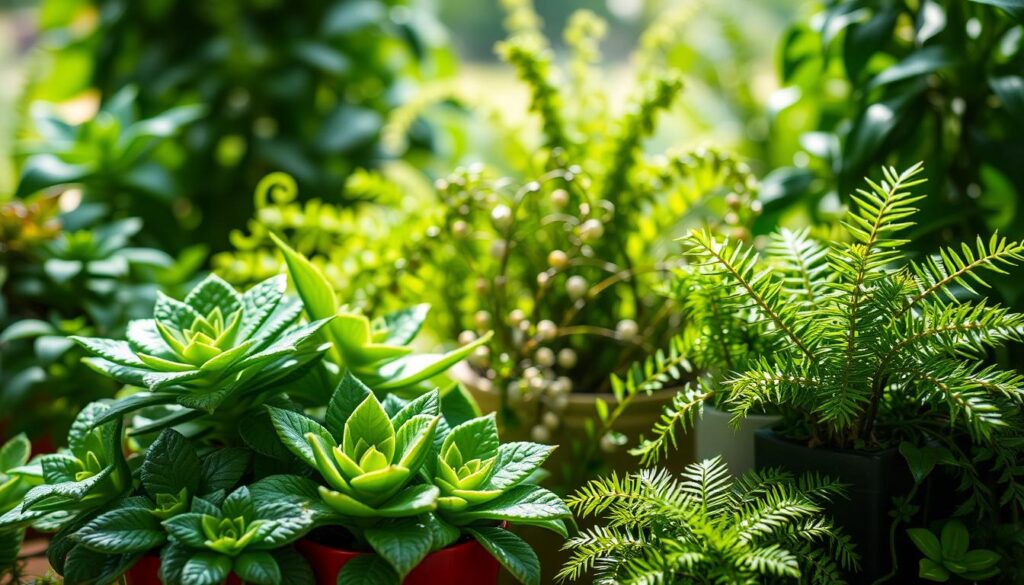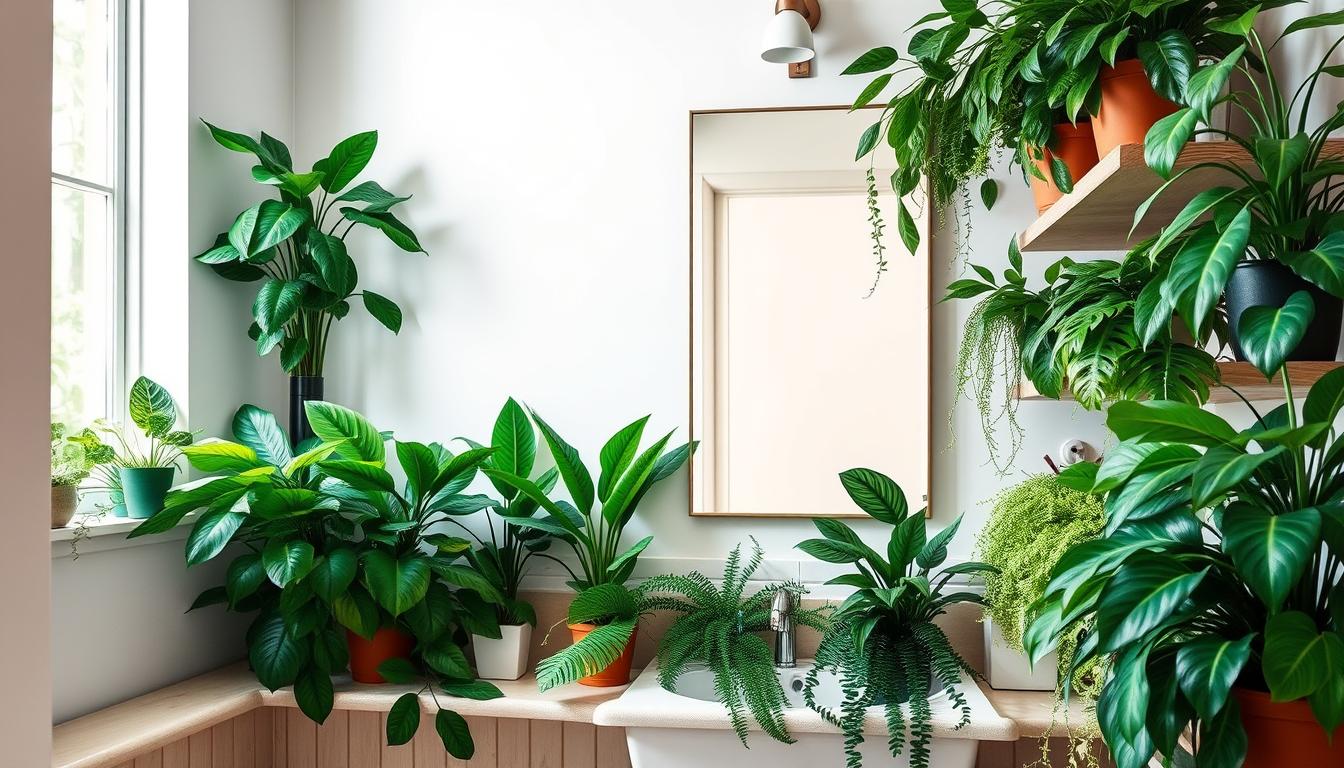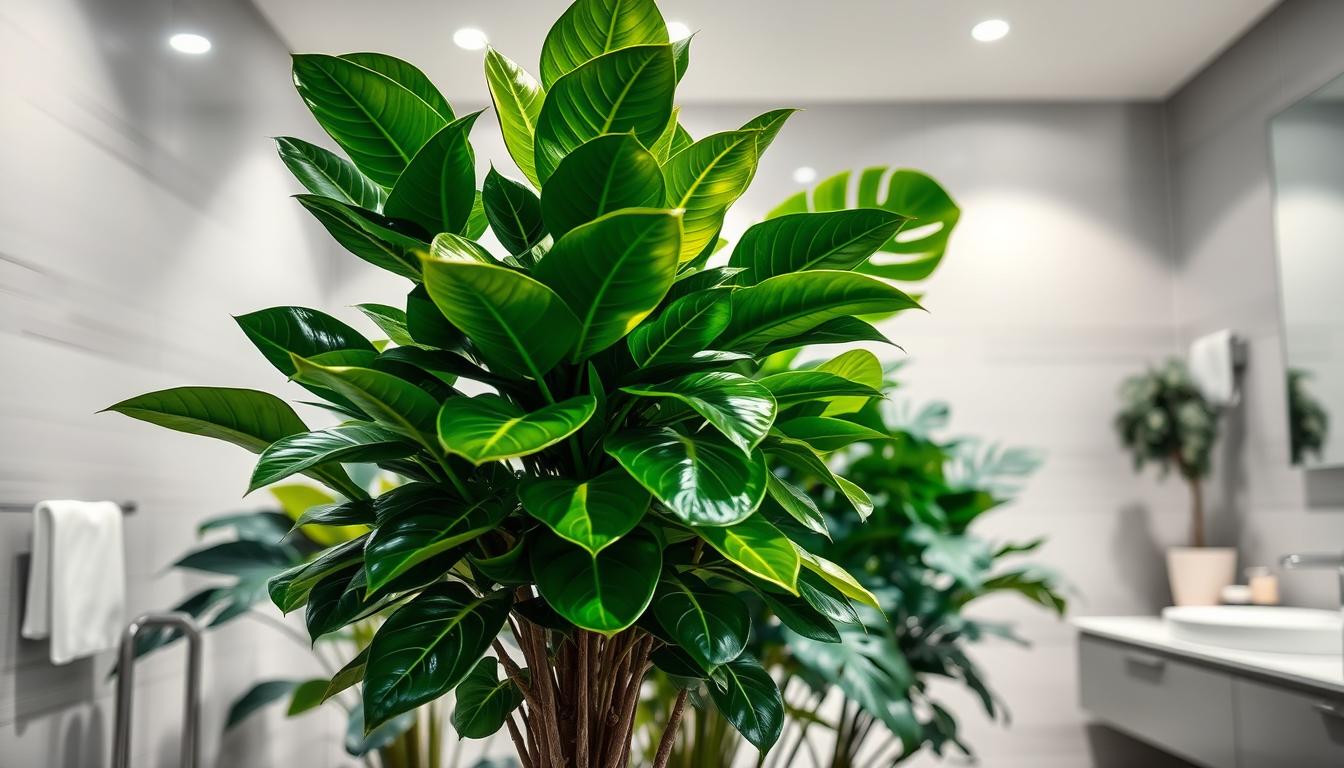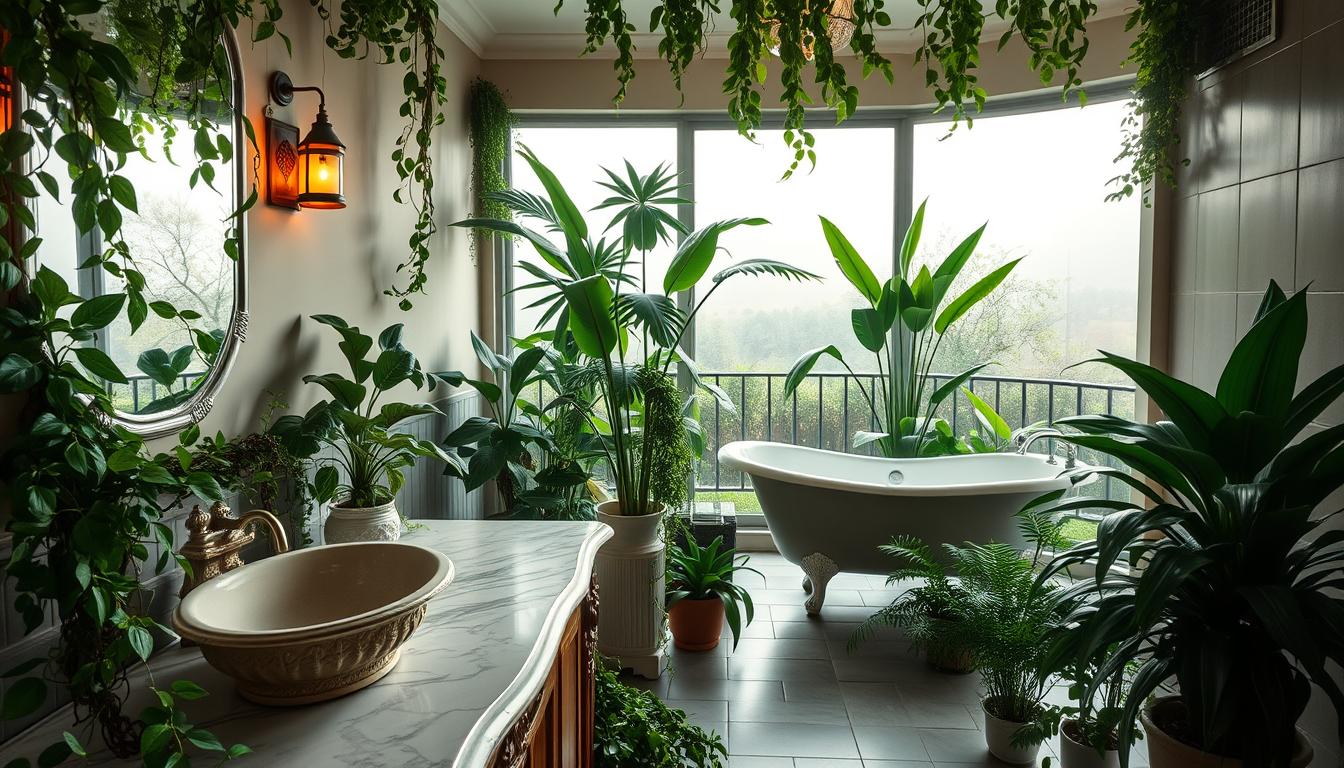Keeping artificial plants looking great involves a cool concept: the humidity-dust feedback loop. This cycle is key to making sure your fake greenery stays vibrant and lasts long. If you don’t clean them well, dust and moisture can make the colors fade and materials wear out. This makes once-lovely decorations look like clutter. By understanding how to maintain fake plants, you can make your home look nicer and keep your fake plants in good shape for a longer time.
The Importance of Caring for Artificial Plants
Taking care of artificial plants keeps them looking good and lasting longer. They don’t need water or sun like real plants. But, they do get dusty and can fade if not cleaned regularly. Cleaning them keeps them looking new.
Good care stops fake plants from getting dull and dirty, making them last longer. This way, you don’t have to keep buying new ones, saving money. Just a little effort in cleaning can make these plants make your home look great for a long time.
Understanding the Humidity-Dust Feedback Loop: Breaking the Cycle for Fake Plants
The relationship between humidity and dust is key for fake plants’ care. These elements affect how healthy and pretty artificial greenery looks. Knowing the effects of humidity and dust is crucial for maintaining vibrant fake plants.
How Humidity Affects Fake Plants
Humidity can greatly impact artificial plants. Too much moisture harms plants made of silk or certain plastics. High humidity leads to mildew, ruining the look of your fake plants. Keeping the right humidity levels stops them from wearing out, so your decor stays looking great.
Impact of Dust Accumulation on Artificial Foliage
Dust hurts the look of fake plants and makes moisture problems worse. Dust collects moisture, creating a perfect spot for mold. Cleaning your fake plants regularly stops dust and moisture problems. This keeps your artificial greenery looking good for longer.
Choosing the Right Fake Plants for Your Home
When picking fake plants for inside or outside, quality and how long they last matter a lot. If you go for those that resist sun damage, they will look bright and alive no matter the sunlight. This way, your outdoor space looks better and you save money over time.
UV Protection for Outdoor Displays
For outdoor fake plants, getting ones with UV protection is a must. Search for those tagged as “UV protected” to keep them from fading in the sun. Brands like Balsam Hill offer made-for-outdoor options that don’t get ruined by the sun or weather changes. With these, your garden will look good longer.
Materials to Consider When Buying Fake Plants
What your fake plants are made of is super important. Here’s what you should think about:
- Polyethylene stuff is very tough and keeps its color under the sun.
- Silk ones look real but can’t take much sun.
- Plastic ones are good with different weather and keep their color well.
Caring for your outdoor fake plants the right way keeps them nice and can make them last longer. This makes your outdoor spots more enjoyable.
Regular Cleaning: An Essential Routine
Keeping your artificial plants clean needs a steady plan. A good cleaning schedule stops dust from building up and makes them stay bright. The spot they are in and the surrounding air can affect how often you need to clean them. For example, plants by fireplaces or in busy spots may need more care than others.
Setting a Cleaning Schedule
Having a set cleaning time helps your artificial plants last longer. It’s best to clean them every week or every other week, depending on where they are. This regular cleaning stops dust from piling up too much, which makes it easier to keep them clean.
- Weekly: Ideal for areas with high traffic or exposure to dust.
- Biweekly: Suitable for less frequently visited spaces or concealed displays.
- Monthly: Perfect for more static arrangements, where minimal interference occurs.
Tools for Effective Cleaning
To clean your artificial plants well, you must have the right tools. Using simple cleaning items can make the job faster and give better results.
- Soft microfiber cloths for gentle dusting.
- Compressed air canisters to reach tight spots.
- Lightly soapy water for deeper cleans, especially on stained areas.
Methods for Cleaning Fake Plants
Taking care of artificial plants means using good cleaning methods for flowers and leaves. Doing regular cleanups keeps them looking bright. By removing dust often, your fake plants will last longer and look better.
Dusting Techniques for Artificial Flowers and Leaves
Start cleaning from the top of the plant, moving downward. Shake or tap the leaves gently to get rid of dust. Use a cool hairdryer for detailed areas, blowing dust away safely. Add these steps to your cleaning routine for artifical plants.
Using Water and Vinegar for Stains
To clean hard stains, mix water and vinegar equally. Put it in a spray bottle, lightly spray the stained spots, then wait a bit. Wipe gently with a soft cloth. This method cleans stains and makes your artificial flowers look nicer.
Storing Fake Plants Correctly
When the seasons change, storing your fake plants right is key to keeping them looking good. You need to pay close attention when you pack them away. Doing it right will keep them nice for the next season and makes decorating easier.
Best Practices for Seasonal Storage
Clean your artificial plants before storing them. Dust and dirt can cause damage if left on. Be sure to:
- Clean each plant well with a damp cloth or a soft cleaner.
- Make sure they are totally dry to stop mold from growing.
- Put them in a cool, dark place away from moisture and sunlight.
Choosing the Right Storage Containers
Picking the right containers is important for keeping your artificial plants safe. You should consider:
- Plastic bins with tight seals to keep out water.
- Breathable fabric bags to reduce dust buildup.
- Mark your containers so you know what’s inside later.
Addressing Common Issues with Fake Plants
Keeping fake plants looking good means fixing common problems like color fading and damage. Prolonged sunlight or not storing them right can make colors fade. By taking action early, you can keep the colors vibrant and make your artificial plants last longer.
Dealing with Fading Colors
To prevent color loss, start with UV-resistant fake plants. These are made to withstand sunlight better. Moving your plants around regularly ensures all sides get equal light. During offseasons, store them in a dark, cool spot to keep away light and dust. This helps keep your fake plants looking fresh.
Fixing Tears or Damage in Leaves and Stems
When leaves and stems get damaged, it hurts the look of your plants. For small rips, use clear plastic-friendly glue. Make sure to clean the damaged spot before gluing. For bigger issues, you might need to get new parts or make them yourself. Doing this keeps your fake plants looking great for a long time.
Refreshing the Look of Your Artificial Plants
Changing how your artificial plants look can liven up your space. Fluffing and reshaping the leaves can make them more appealing. Doing this upkeep regularly keeps them looking real and interesting.
Fluffing and Reshaping Techniques
To make your fake plants look better, fluffing them is key. Here’s how to reshape them right:
- Gently pull apart the leaves and branches to create a fuller look.
- Rearrange the stems to mimic the natural growth patterns.
- Inspect each part to ensure even distribution of foliage.
Using Natural Accents for Realism
Adding natural accents can make your fake plants look more real. Try these tips:
- Add decorative rocks or pebbles at the base to create a grounded look.
- Incorporate twigs or dried flowers to offer a more organic feel.
- Use pots that reflect natural materials like wood or stone.

Creating a Respondent Environment for Fake Plants
Making a good environment for fake plants helps them look better for longer. It’s important to control humidity around these plants. This keeps your space nice and makes sure the plants don’t get moldy.
Avoiding Excess Humidity
Too much humidity can cause mold on your fake plants. Here are some ways to prevent that:
- Utilize dehumidifiers in areas prone to high moisture levels.
- Ensure proper ventilation in rooms where artificial plants are displayed.
- Monitor humidity levels and adjust them to create an ideal climate for artificial plants.
Keeping Them Dust-Free with Decor Strategies
Keeping your artificial plants free from dust makes them look better and easier to clean. Try these decor tips:
- Position plants on higher shelves or enclosed spaces to minimize dust exposure.
- Use covers or boxes when not in use, creating barriers against dust accumulation.
- Integrate plants within a well-kept environment, reducing overall dust presence.
Breaking the Dust-Humidity Cycle
Keeping your home clean can be tough with all the dust around. Pets, carpets, and using your fireplace add to the issue. Knowing where dust comes from helps you clean better. This means your artificial plants will look good for longer.
Identifying Your Home’s Dust Factors
Start by really looking around your home. Check out the usual dust spots:
- Pets and their dander
- Carpets and rugs that trap dust
- Textiles like curtains and upholstered furniture
- Outdoor pollutants that enter the home
- Frequent cooking activities
- Fireplace use, contributing to smoke and ash
Dealing with these areas makes your home cleaner and fresher.
Adjusting Humidity Levels for Optimal Care
Humidity has a big role in how much dust you have. Keeping your home’s humidity right can cut down on dust. Try for humidity between 30% and 50%.
Use dehumidifiers when it’s muggy or humidifiers when it’s dry. Clean your air regularly too. This makes your home feel nicer and cleaner.
Enhancing Home Decor with Fake Plants
Mixing fake and real plants can make your home look better. This mix adds to the beauty by bringing together different textures, colors, and styles. It makes the space more lively and welcoming. By using smart decorating strategies, you can make the fake plants look real and create a nice balance.
Blending Fake and Real Plants
Here are some tips for mixing plants smoothly:
- Pick plants that look alike in size and style for a unified look.
- Put real plants close to fake ones to highlight their natural beauty.
- Choose a mix of textures between fake and real plants so they enhance each other.
Choosing Ideal Locations for Display
Putting your plants in the right spots makes a big difference. Think about these ideas:
- Choose spots with lots of natural light. It helps real plants grow and makes fake ones look better.
- Place plants on shelves or stands to catch the eye and add interest.
- Adding plants to areas like the entrance or living room can make your home feel more inviting.
Financial Advantages of Artificial Plants
Artificial plants come with big financial perks, making them a smart pick for budget-friendly decor. They don’t need the ongoing care that living plants do. So, you save money over time because you’re not buying soil, fertilizer, or spending on water.
Cost-Effectiveness Over Time
The upfront price of fake greenery often ends up saving money. Live plants mean you’re always spending on care supplies. On the other hand, fake plants stay looking good without extra costs. This makes them a smart, money-saving choice compared to real plants.
Longevity of Artificial Foliage
Artificial plants really last. They don’t fade or die because of weather changes. So, you don’t need to replace them often. This means you save money and avoid extra work. It makes these plants a cost-effective way to make spaces look good.
Conclusion
Taking care of artificial plants adds beauty to your home and keeps them looking fresh. When you stop dust from building up, your fake plants look better for longer. This makes your home more inviting.
It’s really important to look after your fake plants well. By cleaning them regularly and placing them carefully, they’ll look great. They become a key part of your home’s style. Spending time on their care shows you value a lovely home.
In the end, caring for faux plants means they can be just as nice as real ones. Their special beauty enhances your space with ease. By looking after them, you get to enjoy their beauty without hassle.



